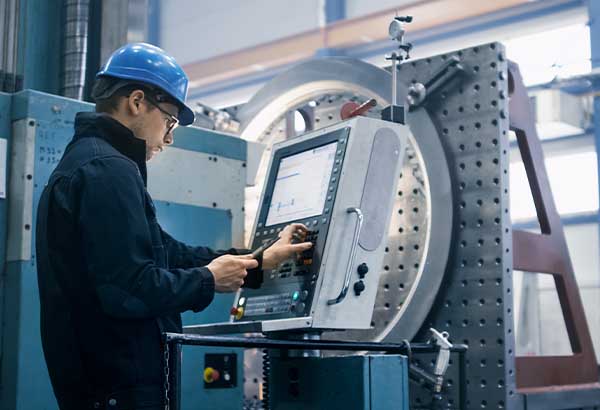
An Intensive 5-day Training Course
Safety in Process Equipment
Design & Operation
Risk Minimization Approach
Scheduled Dates
Classroom
| 02-06 Mar 2026 | Dubai - UAE | $5,950 | RESERVE A SEAT |
| 20-24 Apr 2026 | Dubai - UAE | $5,950 | RESERVE A SEAT |
| 07-11 Sep 2026 | Dubai - UAE | $5,950 | RESERVE A SEAT |
| 28 Sep-02 Oct 2026 | Al Ain - UAE | $5,950 | RESERVE A SEAT |
| 28 Dec 2026-01 Jan 2027 | London - UK | $5,950 | RESERVE A SEAT |
| 22-26 Mar 2027 | Dubai - UAE | $5,950 | RESERVE A SEAT |
Online
| 07-11 Sep 2026 | Online | $3,950 | RESERVE A SEAT |
Would an alternative date be more suitable?
We offer a variety of tailored training options, customized to meet your organisation's needs. Delivered anytime, anywhere, we make it easy to bring expert training directly to your team.
Why Choose this Training Course?
In all steps of designing of pressure equipment related to hydrocarbons and chemical processing and applied in Oil & Gas, Chemical and Process industries, the process safety comes on the top of the list of all considerations. The safety remains to be of utmost importance during operation and maintenance and has to be verified with various methodologies.
This training course provides an overview of important elements of process safety as they are often encountered in today’s industrial practice. The emphasis is on engineering design aspects of Process Safety Management and it will highlight the safeguarding aspects of processing equipment inside the plant. Techniques for analyzing and mitigating process safety hazards applicable to Oil & Gas processing will be reviewed. Integration of the concepts required to achieve an optimum approach to Process Safety Engineering is the main goal of this course. Exercises and useful examples will be utilized throughout the course to emphasize the key learning points.
The training course will feature:
- Importance of the concept of “Inherently Safer Design”
- Design principles based on Standards for safe operation of process equipment
- Selection and sizing of safety valves and pressure relief systems
- Methods for process hazards analysis: HAZOP, LOPA, FMEA
- Detection and prevention methods for fire and explosion accidents
- Plant Equipment Inspection (NDT) and Maintenance Procedures
What are the Goals?
At the end of this training course, the participants will be able to:
- Understanding different aspects of process design that influence process safety
- Appreciate “inherently safer design” for the entire process plant operation
- Evaluate mechanical integrity of process equipment
- Identify hazards associated with process fluids regarding impact on material degradation
- Follow code requirements for sizing relief valves to handle relief streams
- Operate emergency de-pressuring systems (EDP) in case of fire and gas explosions
Who is this Training Course for?
This training course is suitable to a wide range of professionals but will greatly benefit:
- Operation, technical service and maintenance professionals
- Technical professionals responsible for maintenance and repair of equipment
- Professionals involved in inspection and maintenance and repair
- Project engineers and HSE professionals
- Technical professionals dealing with risk assessment and integrity analysis
How will this Training Course be Presented?
This PetroKnowledge training course will be conducted along workshop principles with formal lectures and interactive examples, which will result in the active participation of all delegates in discussions and teamwork. Real life examples will be selected to illustrate the efficient operation and potential technical failures as well as their root causes. The emphasis will be on troubleshooting the problems and maintaining plant safety. There will be ample opportunities for active, open discussion and sharing professional experiences on various safety issues. All course materials will be provided.
Daily Agenda
Day One: Overview of Safety in Process Design
- Definition of Safety in Process Design
- Overview of Historical Incidents and Problem Areas
- Components of Process Safety: People, Plant, Process
- Risk Identification and Safety Analysis
- Process Hazard Analysis: HAZOP, LOPA, FMEA
- Hazards Associated with Specific Plant Systems
- Elimination of Hazards through Process Design
- Prevention of Human Error through Process Control and Monitoring
Day Two: Inherently Safer Design
- “Inherently Safer Design” Methodology
- Pre-Design and Design Phases
- Materials of Construction and Optimized Fabrication
- Hazard Associated with Process Fluids and Chemical Reactions
- Corrosion, Erosion and Material Degradation
- Leakage and Loss of Primary Containment
- Dispersion of Hydrocarbon Release
- Flammability of Chemicals
Day Three: Safety of Process Equipment
- Hazard Associated with Process Equipment
- Safety Considerations in Reactor Design
- Design Procedure for Safety of Pressure Vessels, Storage Tanks, Reactors, Heat Exchangers
- Venting of Tanks and Vessels: Codes, Standards and Best Practices
- Piping System Design and Safety
- Design of Piping System Accessories: Valves, Fittings, Supports
- Assessment of Material Degradation during In-Life Cycle: Fitness for Service
- Monitoring, Testing and Inspection (NDT)
Day Four: Design of Pressure Relief Systems
- Design of Safety Valves
- Operation of Pressure Relief System
- Calculation and Sizing of Relief Loads of Pressure Relief Systems
- Pressure Relief Valves vs. Rupture Discs
- Codes, Standards and Best Practices
- Specifics of Pressure Relief Systems for Pumps, Compressors, Turbines
- Process Plant Disposal Systems
- Disposal Hazards, Risk Assessment and Environmental Factors
Day Five: Process Monitoring and Control
- Safety Instrumented Systems
- Process Plant Monitoring and Control System: SCADA
- Emergency Depressurization System (EDP)
- Prevention of Fire and Gas or Dust Explosions
- Safety Consideration in Plant Layout and Equipment Spacing
- Management of Change and Integrity Operation Window
- Plant Equipment Inspection and Maintenance Procedures
- Final Conclusions
Certificate
- On successful completion of this Training Course / Online Training Course, a PetroKnowledge Certificate / E-Certificate will be awarded to the delegates.

